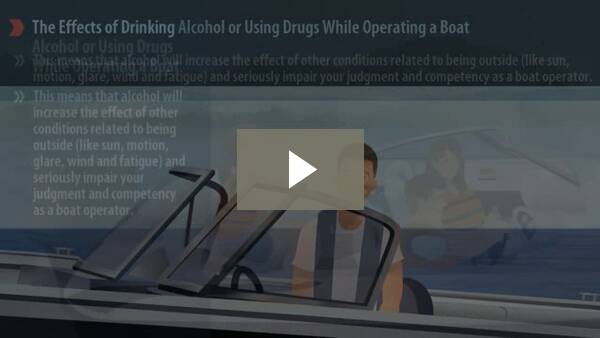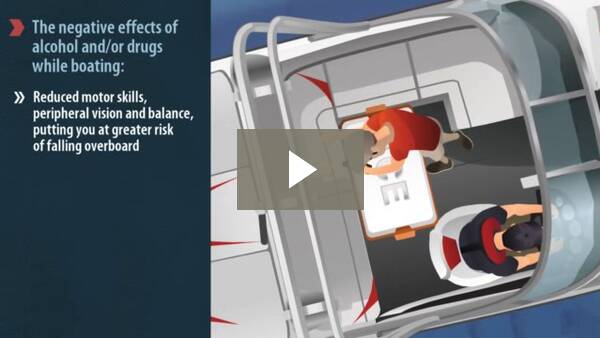Boating and Alcohol Laws
Unfortunately, boating under the influence (BUI) is a significant issue on American waterways. In fact, boating under the influence of alcohol or drugs is a factor in approximately 1/3 of the boating-related accidents and deaths in the U.S.
Laws and Regulations for Boating and Alcohol
Operating a boat anywhere in the U.S. while impaired by alcohol or drugs is illegal and extremely dangerous. Boat operators who have a blood alcohol concentration level (BAC) in excess of 0.08, or 0.10 in some states, are subject to a civil penalty of up to $1,000 and a criminal penalty of up to $5,000. Remember, this fine is applicable to all boat operators—from the single fisherman to the captain of a ship.
If a boat operator under the influence of drugs or alcohol kills or seriously harms another person on the water, the penalty can be up to five years in prison and a fine of $5,000.
Note: Some states have additional penalties for boating under the influence and the maximum BAC level will vary depending on the state in which you are boating.
The Effects of Alcohol and Drugs While Operating a Boat
Being on the water and in the sun all day feels great, but it can be physically draining. If you’ve been operating the boat in the sun and have been sweating, you may also be dehydrated. Consuming alcohol under these circumstances will greatly increase the level of danger because alcohol acts as a stressor. This means that alcohol will increase the effect of other conditions related to being outside (like sun, motion, glare, wind and fatigue) and will seriously impair your judgment and competency as a boat operator.
You can enjoy a day of boating without alcohol. Always pack cold, non-alcoholic beverages like soda or lemonade, to refresh yourself and your passengers with and to help deter those on board from consuming alcohol.
Note: Your boat passengers should wear their life jackets at all times—especially if they’ve been drinking. Additionally, if anyone is under the influence of drugs or alcohol they should NEVER participate in towed sports activities because alcohol will slow down their swallowing and breathing reflexes. This means the intoxicated person will be more likely to drown if they wipe out while being towed.
The negative effects of drinking alcohol while boating include:
- A diminished sense of judgment and ability to process information—alcohol impairment will make you less attentive and will lessen your ability to make good, smart choices on the water.
- Slower reaction and reflex response times (you may not be able to avoid a collision with another boat if you are operating while impaired).
- Reduced motor skills, peripheral vision and balance, putting you at great risk of falling overboard.
- Poor depth perception, vision, focus and a reduced ability to distinguish colors (you must be able to see the navigation lights of other boats).
- Inner ear disturbances that make it more difficult to find the surface of the water if you fall overboard (not knowing up from down when underwater is terrifying!).
- Accelerated hypothermia (alcohol lowers the body’s resistance to cold).







